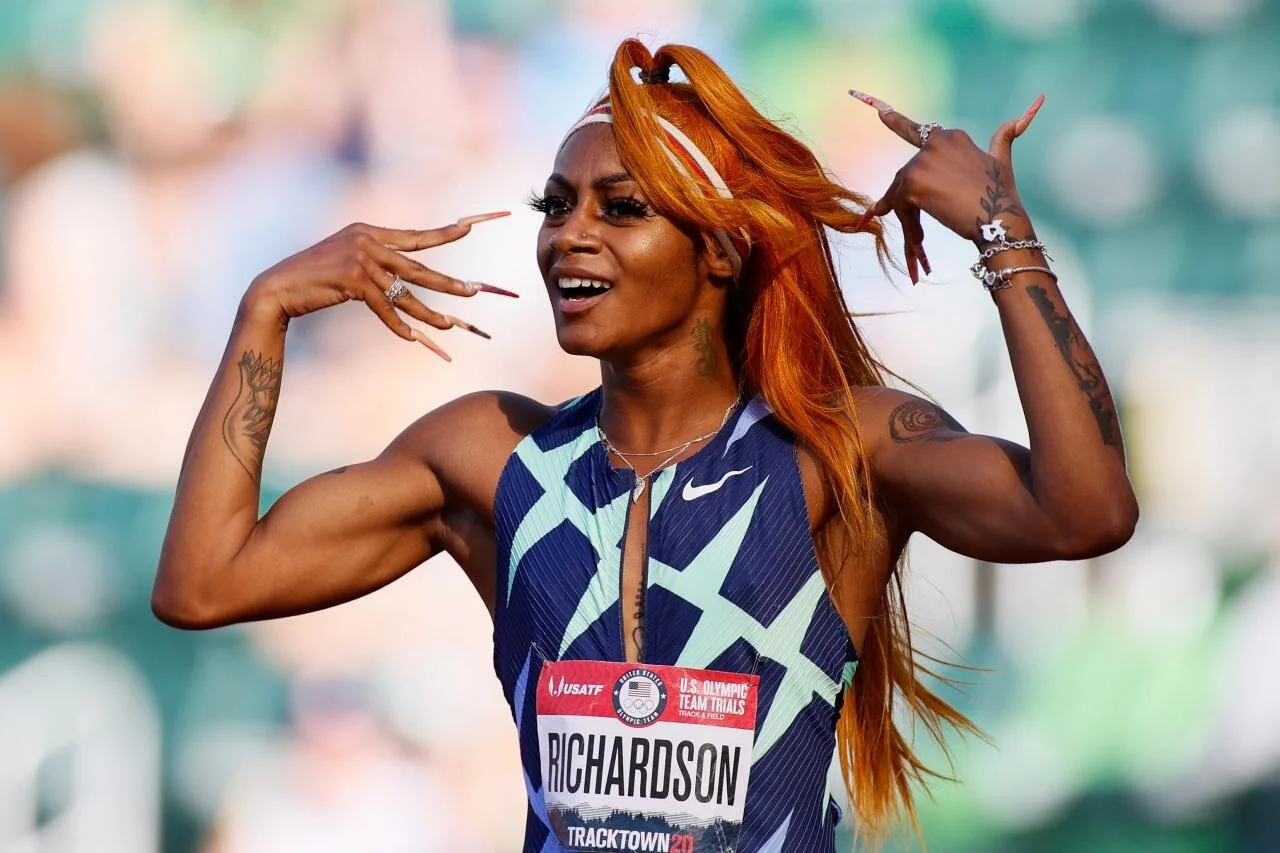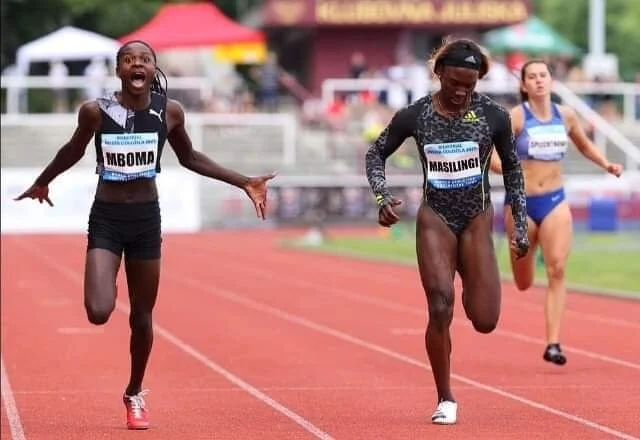The Olympics’ Recent Rulings Reinforce The Historic Demonization Of Black Womanhood
Gwen Berry and Sha’Carri Richardson
By: Cory Utsey
The Tokyo Summer Olympics commence in a mere two weeks. Through the various Olympic Trials, spectators were able to witness the raw talent of a number of athletes across the world.
For Black women athletes especially, household names such as Simone Biles and Allyson Felix maintained their projected success, while newcomers such as Sha’Carri Richardson claimed the hearts of many. It seemed as though there would be many Black women that would dominate their respective sports.
But unfortunately, excelling within one’s sport is not good enough. Many Black women athletes have faced much scrutiny, at times complete disqualification, while the political and cultural agency of Black athletes as a whole has been limited. Black athletes are not allowed to wear regalia related to the Black Lives Matter movement, nor are any athletes permitted to express any form of political messaging, due to the International Olympic Committee’s Rule 50. And while the International Swimmer Federation (FINA) is currently in the process of reviewing the decision to disallow Black athletes from wearing swim caps made for Black natural hair, the rule’s initial existence is indicative of the way in which widely used standards are often centered around whiteness.
For many people, some of the recent rulings made by the Olympics, particularly against Black women, invoke double standards and reinforce the historic demonization of Black womanhood.
Sha’Carri Richardson Disqualified for Marijuana
Sha’Carri Richardson - Credit: Steph Chambers
Although marijuana is legal in many US cities, including Oregon--the city in which Sha’Carri Richardson consumed the substance--, she was placed on a 30-day suspension and left off of the USA Track and Field roster after testing positive for THC. In an interview with the Today Show, Richardson revealed that she was aware of the potential consequences from testing positive for marijuana, but still chose to ingest the substance. Reeling from the recent death of her mother, the drug almost served as a form of escapism from the pain she had been experiencing.
It is true that rules are rules, and it is also true that Richardson must take accountability for her actions; however, the validity of this rule remains widely questioned. Not only is marijuana legal in 19 states, but it is not a performance-enhancing drug and would therefore not increase her stamina or performance as a runner.
Richardson’s suspension is quite reminiscent of the way in which Black and Brown people are often met with demonization and legal punishment for their dealings with marijuana, while white people are able to open dispensaries. Where white people are labeled entrepreneurs, Black people are labeled offenders, and Richardson was given neither grace nor empathy in an emotionally-charged time of her life.
Christine Mboma, Beatrice Masilingi and Testosterone Testing
According to CNN, Namibian sprinters Christine Mboma and Beatrice Masilingi were banned from competing because of their naturally high testosterone levels. The Namibia National Olympic Committee and Commonwealth Games Association (NNOC-CGA) states that their testosterone levels exceed the limit placed by a World Athletics’ Policy on Differences of Sex Development (DSD).
In 2018, World Athletics ruled that women with higher testosterone levels must take medication that would reduce their levels in order to compete in certain events, as it would make competition “fairer”; however, neither of the athletes were aware of this rule prior to their competitions. Although Mboma and Masilingi will still be able to compete in the 100 meter and 200 meter events, other Black women athletes have been barred from competing as a result of this ruling. CeCe Telfer, a transgender woman, was disallowed from competing in the Olympic trials for the 400 meter event last month, and Caster Semenya has been banned from competing in any event (from 400 meters to one mile) since 2018.
Not only does the rule police the bodies of Black women, but it reaffirms transphobic notions on what it means to be a “real” woman. Women, including those who are transgender, should not be forced to take medications that alter their natural body production. Once again, it becomes clear that whiteness and white womanhood are centered as the standard by which all women should be aligned with, and when non-white women (inevitably) fall outside of these confines, they are punished.
Gwen Berry Condemned for Activism
Gwen Berry (left), DeAnna Price, and Brooke Andersen during the national anthem at Saturday’s U.S. Olympic trials
Photo: Patrick Smith/Getty Images
As stated previously, the International Olympic Committee’s Rule 50 states that athletes cannot sport politically-centered regalia, nor can they engage in any forms of political activism at the Tokyo Olympics. Gwen Berry, a hammer thrower, chose to turn her back on the flag while “The Star Spangled Banner” played at the Olympic trials and faced much criticism from American lawmakers.
Berry, who previously displayed her political outspokenness at the 2019 Pan American games, has not yet decided if she will observe Rule 50 in Tokyo. While the rule was likely enacted in order for the focus to remain on the sports alone, athletes should not have to compromise or abandon their political agency, as politics impact various sectors within one’s life.
Each of these rulings are presented as impartial to race and gender; however, the ramifications of these rulings undermine the nuances of Black women athletes, and ultimately reinforce the historic demonization of Black womanhood. With many potential spectators stating that they will not tune in if Black women continue to be scrutinized or barred from competing, there are hopes that Olympic committees will seek to review the rules and understand their historical implications.









